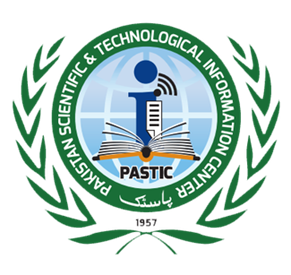Reforming Medical Education in the Digital Age: Integrating AI, Ethics, and Empathy
AI, Ethics, and Empathy: Reforming Medical Education
DOI:
https://doi.org/10.69750/dmls.02.05.0135Keywords:
Medical education, Artificial intelligence, Ethics, Empathy, Curriculum reformAbstract
Medical education stands at a defining crossroads. For centuries, the art and science of medicine have been taught through direct mentorship, bedside practice, and the gradual assimilation of clinical reasoning. Today, however, the digital revolution anchored by artificial intelligence (AI), big data, and simulation technologies is profoundly transforming how future doctors are trained. This transformation, though promising, risks becoming incomplete or even dangerous if it advances without equal emphasis on ethics and empathy. Reform in medical education must therefore embrace technology while safeguarding the humanity of medicine [1,2].
The Rise of Artificial Intelligence in Medical Education:
AI is no longer a futuristic add-on; it has entered classrooms, clinics, and operating theaters. Adaptive e-learning platforms can tailor study material to individual learning curves, enabling more efficient knowledge retention [1]. AI-driven simulations recreate high-risk clinical scenarios, allowing students to practice surgical procedures, emergency resuscitation, or complex diagnostics without jeopardizing patient safety [2]. Natural language processing and large language models now support clinical reasoning exercises, providing instant feedback and exposing students to broader clinical differentials than traditional didactics [3].
Equally transformative is the potential of AI in assessments. Algorithms can analyze student responses, predict areas of weakness, and provide personalized remediation plans. Data-driven insights, if used responsibly, can democratize access to high-quality training, particularly in low-resource settings [4]. In a world where the physician workforce is unevenly distributed, such technology could help bridge global inequities in medical training.
However, unchecked integration of AI also brings risks. Over-reliance may deskill students, diminishing critical thinking and judgment. Furthermore, unequal access to these technologies could deepen educational disparities between resource-rich and resource-poor institutions [5].
Ethical Imperatives in the Digital Era:
The digital revolution in medical education is shadowed by profound ethical dilemmas. Central among these are patient data privacy, algorithmic bias, and accountability in decision-making [6]. AI systems, while powerful, often function as “black boxes,” offering little transparency in how conclusions are reached. When students train on such systems, they risk internalizing biased or incomplete reasoning if not guided critically [7].
Embedding bioethics at every stage of medical education has never been more urgent. Traditional principles autonomy, beneficence, non-maleficence, and justice remain foundational, but new digital-age extensions must be taught. Students must question the ethical implications of using synthetic datasets, be aware of the biases inherent in algorithm training, and appreciate the sociopolitical consequences of unequal access to AI-enabled care [8,9]. A principle-based approach to AI ethics within medical curricula has been proposed as a pragmatic model, equipping students with structured tools to navigate these complexities [10]. Without such integration, medical graduates may become technologically skilled but ethically unprepared to safeguard patient dignity in a digital-first world.
Empathy at Risk:
At its heart, medicine is relational, not transactional. Empathy the ability to understand and share the feelings of patients is as essential to healing as clinical expertise. Yet, there is a genuine risk that technology, while efficient, may erode human connection. Students spending more time on screens, simulations, and AI interfaces than at the bedside may lose the subtle lessons of body language, tone, and silence [11].
Evidence suggests that narrative medicine, reflective practice, and patient storytelling are vital pedagogical tools to preserve empathy and professionalism in the digital era [12]. These humanistic elements reinforce trust, compassion, and ethical maturity, ensuring future physicians remain healers, not technicians. Integrating AI in education should therefore complement, not replace, patient-centered training [13].
Toward a Holistic Reform Agenda:
Reforming medical education in the digital age demands a holistic approach, built on three interdependent pillars:
- AI-Driven Pedagogical Innovation:
Integrating AI to modernize curricula, enable adaptive learning, and prepare students for technologically enriched practice [1–4]. This requires training not only in the use of AI but also in AI literacy, enabling students to critically evaluate outputs rather than blindly accept them.
- Ethical Grounding:
Establishing ethics modules that directly address AI’s challenges bias, privacy, accountability, and equity [6–10]. Students must learn not just how to use technology, but when restraint or alternative approaches are more ethical [14].
- Empathy Reinforcement:
Sustaining the human side of medicine through narrative-based learning, community engagement, and patient-centered curricula. This balance prevents the drift toward dehumanized, mechanistic practice [15].
CONCLUSION
The future of medical education cannot be dictated by technology alone. Artificial intelligence offers unprecedented opportunities to democratize learning, sharpen diagnostics, and accelerate training. Yet, these benefits are fragile if not anchored in ethics and empathy. Reforming medical education requires integration of AI for efficiency, ethics for responsibility, and empathy for humanity. The physician of tomorrow must not only be technologically adept but also ethically grounded and emotionally intelligent. Only then can medical education fulfill its timeless mission to produce healers capable of navigating both the complexities of technology and the vulnerabilities of human suffering.
Downloads
References
Ma Y, Song Y, Balch JA, Ren Y, Vellanki D, Hu Z, et al. Promoting AI competencies for medical students: a scoping review on frameworks, programs, and tools. JMIR Med Educ. 2023;9(1):e50373. doi:10.2196/50373.
Alami H, Lehoux P, Denis JL. Artificial intelligence in health care: laying the foundation for responsible, sustainable, and inclusive innovation. CMAJ. 2020;192(6):E153–7. doi:10.1503/cmaj.190798.
Pinto Dos Santos D, Giese D, Brodehl S, et al. Medical students’ attitude towards artificial intelligence: a multicentre survey. Eur Radiol. 2020;29(4):1640–6. doi:10.1007/s00330-019-06246-2.
Kolachalama VB, Garg PS. Machine learning and medical education. NPJ Digit Med. 2018;1:54. doi:10.1038/s41746-018-0061-1.
Honavar SG. Artificial intelligence in health care: friend, foe, or frenemy? Indian J Ophthalmol. 2020;68(3):417–20. doi:10.4103/ijo.IJO_310_20.
Mittelstadt BD. Principles alone cannot guarantee ethical AI. Nat Mach Intell. 2019;1(11):501–7. doi:10.1038/s42256-019-0114-4.
Gerke S, Minssen T, Cohen G. Ethical and legal challenges of artificial intelligence-driven healthcare. In: Artif Intell Healthc. 2020. p. 295–336. doi:10.1016/B978-0-12-818438-7.00012-5.
Eitel J, Kannampallil T. Ethical considerations in the use of artificial intelligence in health professions education. Acad Med. 2022;97(9):1295–302. doi:10.1097/ACM.0000000000004795.
Luo J, Wu M, Gopukumar D, Zhao Y. Big data application in biomedical research and health care: a literature review. Biomed Inform Insights. 2020;12:1–10. doi:10.1177/1178222620938294.
Weidener L. Teaching AI ethics in medical education: a principle-based approach. JMIR Med Educ. 2024;10:e55368. doi:10.2196/55368.
Bombeke K, Symons L, Debaene L, De Winter B, Van Royen P, Schol S. Medical students trained in communication skills show a decline in patient-centered attitudes: an observational study. Patient Educ Couns. 2019;76(3):302–7. doi:10.1016/j.pec.2009.06.007.
Charon R. Narrative medicine: honoring the stories of illness. Oxford: Oxford University Press; 2021.
Hojat M. Empathy in health professions education and patient care. Cham: Springer; 2022.
Dankwa-Mullan I. Health equity and ethical considerations in using AI in public health. Prev Chronic Dis. 2024;21:E25. doi:10.5888/pcd21.240245.
Koranteng E, Chen J, Gajaria A. Empathy and equity: key considerations for large language models in health education. JMIR Med Educ. 2023;9(1):e51199. doi:10.2196/51199.
Downloads
Published
Data Availability Statement
Medical education; Artificial intelligence; Ethics; Empathy; Curriculum reform






















